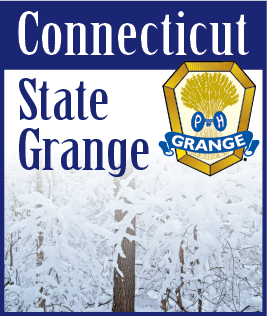 |
|
 |
|
 |
|
 |
 |
| Legislatively Speaking |
|
 |
Borderlands Project a priority for 2007 legislative session |
| |
By Gordon Gibson, Legislative Committee Director |
| |
FEBRUARY 2007 -- Connecticut has a goal of protecting 130,000 acres of prime farmland throughout the state. The Department of Agriculture has preserved 31,275 acres so far and is averaging 773 new acres each year. At this rate the State will not achieve its goal until the next century. The problem is that we are irretrievably losing 7,000 to 9,000 acres or approximately 12 percent of our farmland to development every year. This is the highest rate of loss of any state in the United States.
The bottom line is money. The Department of Agriculture is currently negotiating for the purchase of development rights on 32 farms and has a backlog of applications where they have not started negotiations. Public Act 05-228, now known as the Community Investment Act, provides some funding, but most of the funds must still come from the sale of the State’s general obligation bonds, the government equivalent of IOU’s. The General Assembly has authorized bond funds to purchase development rights easements, but the State Bond Commission must approve the sale of the bonds before the money actually exists.
The Bond Commission considers the requests for funds for all proposed state projects and the interest rate the State will have to pay on the bonds it issues before deciding what items to approve each month. There were some months during the past year when the Bond Commission decided to not approve new bonding for anything because of the interest rate the State would have to pay on those bonds.
The Connecticut Farmland Trust and several land trusts are doing what they can to preserve farmland, but again the bottom line is money. These trusts may apply for limited state and federal grants, but they must raise most of the funds to purchase easements and all of their operating costs on their own. Most experts now agree that all of Connecticut’s prime farmland will either be preserved through development rights easements or permanently lost to development within the next fifteen to twenty years.
The Nature Conservancy and the Rhode Island Policy Council have identified an area along the Rhode Island - Connecticut border where there is a substantial amount of open land that could be preserved in both states extending from the Massachusetts state line to Long Island Sound. Some of this area is prime farm land and some is more suitable for forest and open space land. It is generally considered to be the last remaining large tract of rural land between Portland, Maine and Washington, D.C.
The small towns in this area are preparing themselves for the growth that will inevitably come, but they want to retain as much of their local character as possible. The Nature Conservancy and the Rhode Island Economic Policy Council have designated this area as the Borderlands Project and made several proposals to accommodate growth while retaining open areas and local character. One of these is the transfer of development rights.
Under the proposal, the towns would designate areas where they want to encourage development and other areas which they want to keep as open areas. A developer could then purchase the development rights to land in the area designated to be kept open and then use those development rights for more intense development in an area designated for development. The land owners in both the development and open space areas would benefit from the increased value of their land, the developer would then make approximately the same profit he would have made from less intense development of both areas, the town can concentrate its municipal services such as sidewalks, water and sewer in a smaller area and the general character of the town would be preserved for future generations.
Taking the program one step further, towns or land trusts could conceivably purchase the development rights to land whenever the owner wants to sell them and then hold them for resale to a developer at a later date. Similarly, developers could “purchase” development rights by giving money to the towns to be used to acquire development rights at a later date when the owners of land in the open space areas are willing to sell.
Rep. Diana Urban (R-43rd District) said at a recent hearing on the transfer of development rights proposal that enabling legislation would be necessary before towns in Connecticut could initiate such programs. She indicated she may file such a bill in the 2007 General Assembly.
For more information on the Borderlands Project, visit their website at www.borderlands.org.
|
| |
|
| |
|
Your rating has been saved
|
|
|
|
|
|
|
 |
| |
 |
|
|
|
|
